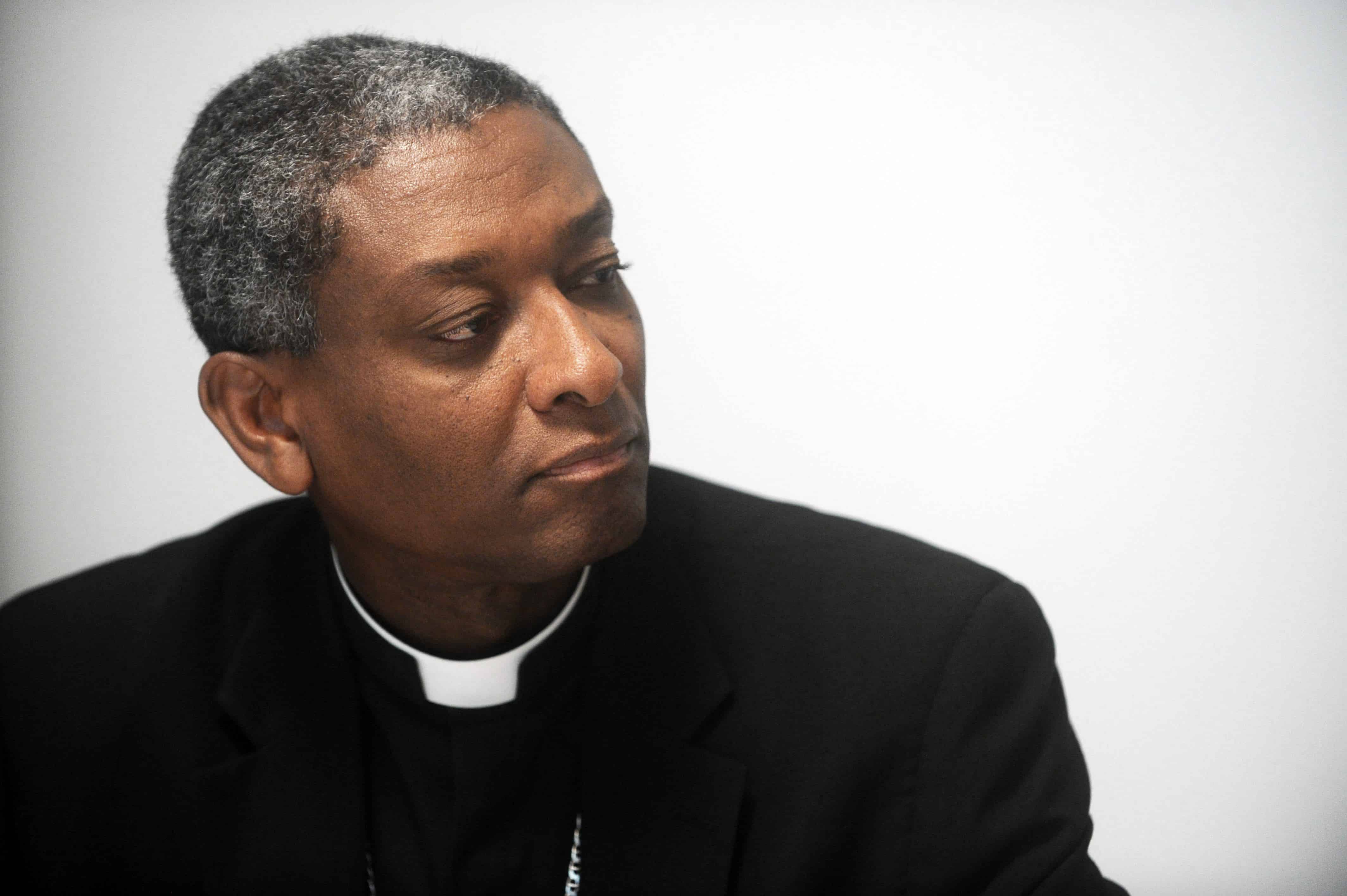PORT-AU-PRINCE, Haiti – For the first time, a Haitian has been named a cardinal – and he’s vowing to “bring the reality” of his tiny, impoverished Caribbean country “into the heart of the Vatican.”
Chibly Langlois, 56, is one of 19 who will be formally appointed to the Catholic Church’s College of Cardinals on Saturday at a ceremony at Saint Peter’s Basilica in Rome.
Just like the others, he was first named in an announcement by Pope Francis on Jan. 12.
But for Langlois, the day already held special significance as the fourth anniversary of a massive earthquake that devastated Haiti.
Langlois said he was moved by the pontiff’s choice of date for the announcement.
“We understand that, with this nomination, the pope wants to invite us to cultivate joy even in the midst of sadness,” he said. “The joy, the suffering, the pain of the Haitian people are equally those of the Haitian church.”
Nearly 170,000 people in Haiti remain homeless after the 2010 earthquake shattered the country and its basic infrastructure and killed 250,000 people.
These days, Haiti is also weathering political strife, with President Michel Martelly currently in talks with the opposition and parliament to end a months-long stalemate over holding parliamentary elections, which were due to take place two years ago.
Langlois, as the head of Haiti’s Catholic Church, is involved in both issues: what he calls a “major economic crisis” and a “political and institutional crisis.”
He told AFP he would take all this experience with him to Rome.
“I’m bringing the reality of the Haitian church to the heart of the College of Cardinals,” he said, adding that the church’s reality “is also Haiti’s reality.”
“I am going to share with the pope the reality of Haiti: speak to him of our riches, of our weaknesses and our limits,” Langlois said.
Haiti in crisis
“We are in a society where there are many difficulties on the economic front. And the church is not from outer space — it is part of reality. What the people experience, the church experiences as well,” he emphasized.
Critics — both from the opposition and from the church — have attacked the government for the slow pace of reconstruction after the quake.
The devastation is still keenly felt in Port-au-Prince, the teeming capital of the Americas’ poorest country, where many are still living in makeshift housing, in very precarious conditions and sometimes facing eviction.
“There are a lot of problems in families. People don’t have the means to meet their needs, to take on their responsibilities,” Langlois said.
Haiti has recently seen an increase in anti-government protests, giving rise to clashes.
Protesters are calling for the resignation of Martelly, who has been in office since 2011, as well as for better living conditions.
Meanwhile, Langlois is working as a mediator in talks to help negotiate an agreement leading to new elections.
He said the process is difficult, but emphasized that the discussions are crucial for the future of the country.
“We don’t want to have a crisis that brings us to cry again for deaths in the country,” Langlois said.
But — despite the difficulty of arriving at a political agreement — he remains optimistic.
“I believe that we are on the right path. We are confident because all the conditions are there for us to sign this agreement,” Langlois explained.
“What we are hoping for is that any accord reached be respected — for the good of all the stakeholders and for the good of the country in general.”
Haiti’s president will attend Saturday’s ceremony at Saint Peter’s Basilica along with a group of 50 Haitians from across the country.
Langlois said he also planned to invite Pope Francis to visit Haiti.








